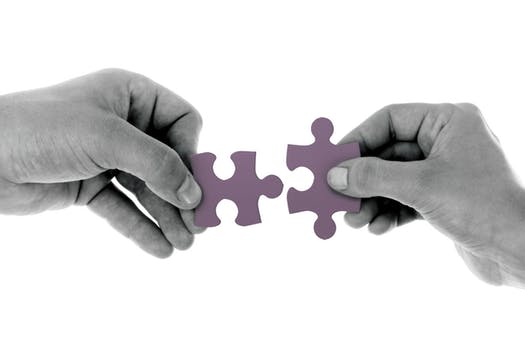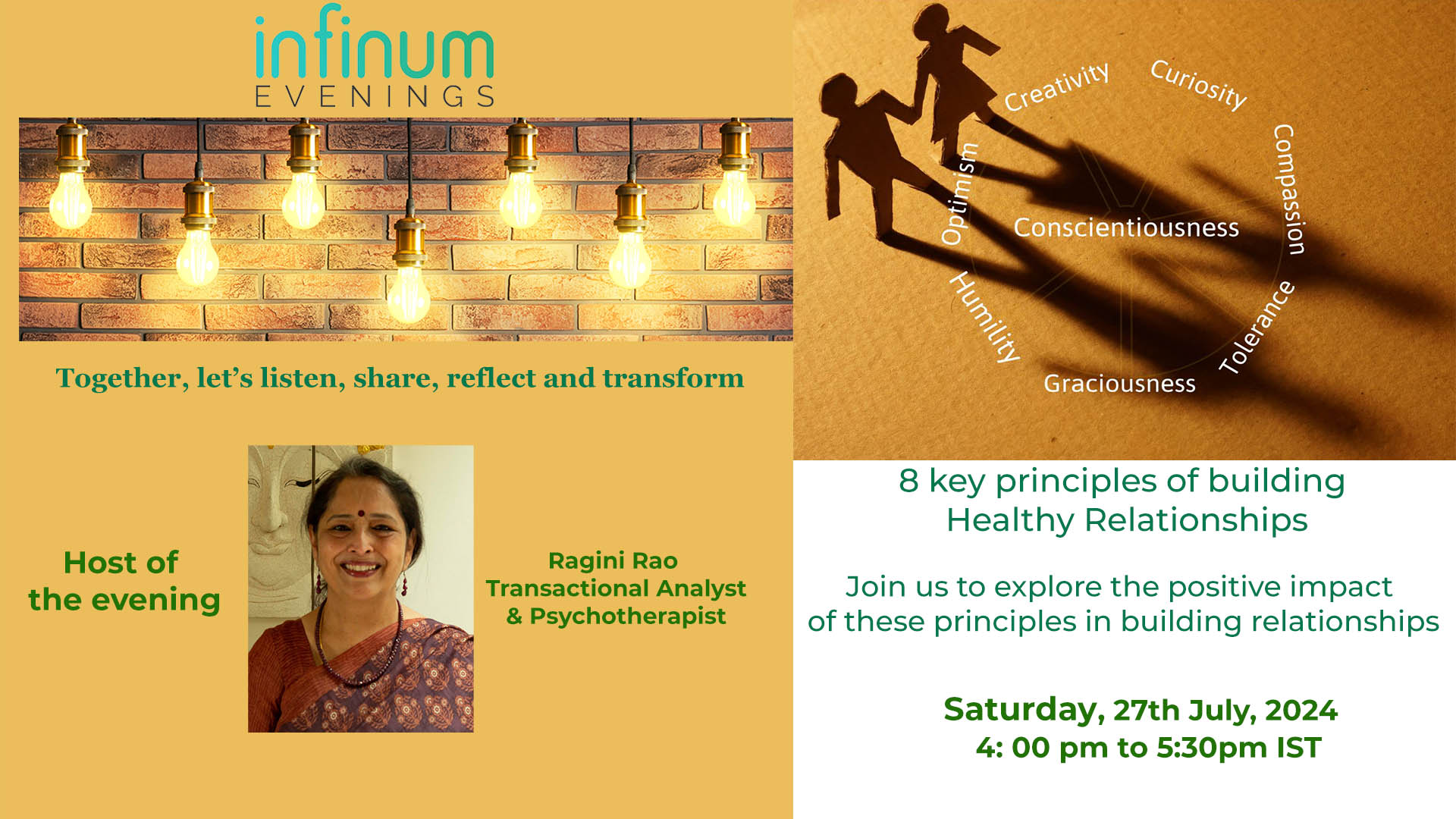Whoever is without self-centred affection for anything, who rejoices not in favourable situations and hates not in unfavourable ones, such a person’s wisdom is firmly set. – Bhagavad Gita- Chapter 2, verse 57
In other words, a wise person is one who is able to bring balance and equanimity in the way she/he views and reacts to situations and people.
To achieve this balance in life, we need the ability to be involved in and be fully connected with our actions and our relationships; and yet, be disconnected to take a meta-perspective; detaching oneself to view the situation from many angles.
The word Connect has a positive connotation. It is an important way to, physically and emotionally, be with whatever we do and with people around us. The thought of a Disconnect, on the other hand, may sound negative. However, it is this ability to disconnect periodically, from actions or relating with people, which enables us to connect internally with ourselves. This enables us to review the situation dispassionately and gives us the power to stay balanced.
Autonomy as a goal in life to maintain balance
In modern understanding of human behaviour too there is a similar approach recommended. Dr. Eric Berne, the originator of the theory of Transactional Analysis, espoused Autonomy as the goal of life.
He explained Autonomy as the release or recovery of three capacities in us- Awareness, Spontaneity and Intimacy.
Awareness is the capacity to know at any given moment what one’s feelings and thoughts are; and how one is impacting or /and being impacted by people around.
Spontaneity is the capacity to choose and respond to a situation, rather than being foolishly impulsive. It’s very similar to what Daniel Goleman, wrote about Emotional Intelligence – as the capacity to know when to be angry, why to be angry and how to be angry in any given situation.
Intimacy is not physical intimacy. It is the ability to genuinely relate with another human being with care and compassion. It also means that one has the space for difficult conversations with another person, when there is intimacy in that relationship.
These three capacities allow us to be objective and be an observer in any given situation.
- Objectivity helps in exercising our sense of reasoning and logical thinking. It helps us to be in the here and now and not regret the past or worry about the future.
- Becoming an Observer needs one to disconnect temporarily, to enable one to view the situation in a dispassionate way. It also helps one to relook at the situation and make an unbiased judgement.
The following episode in Mahatma Gandhi’s life is a good example of the above.
In 1893, during a train trip to Pretoria, South Africa, a white man objected to Gandhi’s presence in the first-class railway compartment, although he had a ticket. Refusing to move to the back of the train, Gandhi was forcibly removed and thrown off the train at a station in Pietermaritzburg. His act of civil disobedience awoke in him a determination to devote himself to fighting the “deep disease of color prejudice.” He vowed that night to “try, if possible, to root out the disease and suffer hardships in the process.” From that night onwards, he became a giant force for civil rights.
Gandhi, in the example above, was able to step back from his experience of humiliation, look at the larger picture and go to the root of the problem. In a sense, he disconnected from falling prey to negative thoughts and feelings and acted with purpose and direction.
Disconnect to connect back with life
Many of us probably do disconnect temporarily to take charge of situations; sometimes consciously and sometimes very intuitively. Any practice that needs to be sustained and consistent requires conscious and concerted effort.
Situations to recognise when to disconnect
- When one is feeling overwhelmed in a situation or in a relationship.
- When one is feeling stuck and not able to move on.
- When one is getting into repeated conflicting situations.
- When one feels that nothing is working or going right.
Ways to disconnect
- Take deep breaths, and bring awareness to thoughts and feelings in the here and now.
- Take a step back and reflect on what’s happening. Use one’s reasoning abilities to test reality and look at options.
- The age old saying of ‘sleep over it’ works very well.
- Physically move oneself from the situation, if need be.
So go on and disconnect; step back and reflect before reacting. Enjoy connecting back; with yourself, situations and others.
Also read
It is about Care and Connection – How Intimate are you with Intimacy?
Please do leave your comments at the bottom and do share with others if you like this article.

















Good food for thought.Objectivity if practised can do wonders in our lives…..
A very interesting thing is that many of us believe that we are very objective and that it is the other person who is biased…..